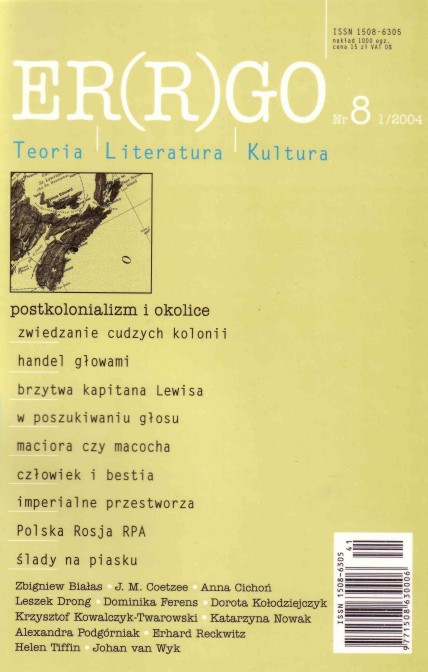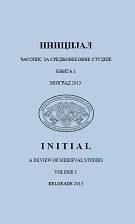



The essay focuses on the literary and non-literary works by Flann O'Brien (born Brian O'Nolan) explored against the background of Irish history, politics and culture in the aftermath of Ireland's emancipation from Britain in 1921. O'Brien's fiction, as well as his satirical columns contributed to "The Irish Times", raise some key postcolonial issues, most notably the role of the Irish language and the prospects of its revival in the Irish Free State. The choice of the continued use of English as the basic means of communication, though apparently politically incorrect, appears to be a necessary evil in a society estranged from its native tongue through centuries of British dominion. O'Brien's writings urge a compromise between two radically polarised positions which emerged in the inter-war period in Ireland: on the one hand, O'Brien appreciates Irish tradition and the Gaelic language; on the other, the progress and well-being of the whole nation necessitate a more pragmatic approach to the postcolonial "burden" (language, tradition, customs, institutions) left behind by the British.
More...
The author's analysis of the chosen literary texts focuses on the representation of childhood. An attempt to investigate childhood from the postcolonial perspective means reevaluation of the process of identity construction, both in the individual and in the communal aspect. The postulated turn from the polarized perception of adulthood and childhood towards the figure of a hybrid suggests also concentration upon the Third Space where we are the Others of ourselves. Homi Bhabha's concept of the Third Space helps to avoid the "politics of bipolarity" and is used here to conceptualize the period of "girlishness" which, according to Judith Butler, is connected with a forced citation of the norm of womanhood and the impossibility to reach to that norm. Exploring the relationship between the gaze and scrutiny with the "phallomorphic sexual metaphors" the author points to Luce Irigaray's and Julia Kristeva's conceptions of womanhood. The forceful citation of the norm mentioned above is strictly connected with language: the author questions the position of language in the postcolonial literature where the choice of a language is politically charged. Here the "feminine" language remains the language of silence or the body; both failing to provide an access to the Third Space where one can speak of oneself and of others.
More...Keywords: Kano model; kindergarten; quality assessment; Lithuania. Kano modelis; vaikų darželis; kokybės vertinimas; Lietuva.
Straipsnyje nagrinėjami vaikų darželių kokybės vertinimo ypatumai taikant Kano modelį. Analizuojama patraukliosios kokybės teorija, atskleidžiami ikimokyklinio ugdymo kokybės užtikrinimo aspektai, pateikiama vaikų darželių klientų lūkesčių analizė. The article analyses the peculiarities of the assessment of kindergartens service quality using Kano model. The theory of Attractive Quality is examined, the issues of preschool education quality assurance are revealed, and the analysis of expectations of kindergartens’ customers are provided.
More...Keywords: advertising source; advertising effectiveness; advertising spokesperson. reklaminės žinutės šaltinis; reklamos efektyvumas; reklamos veidas.
Straipsnyje analizuojami reklaminės žinutės šaltinio įtakos reklamos efektyvumui teoriniai aspektai. Reklama yra viena dažniausių marketingo komunikacijos priemonių, todėl reklamos efektyvumo didinimas tampa siektinu daugelio organizacijų tikslu, padedančiu įgyvendinti marketingo komunikacijos tikslus. Kadangi reklaminės žinutės šaltinis yra vienas svarbiausių reklamos elementų, straipsnio tikslu tapo teorinio reklaminės žinutės šaltinio įtakos reklamos efektyvumui modelio sukūrimas. Siekiant straipsnio tikslo, atlikta mokslinės literatūros analizė ir sintezė. Atlikus tyrimą, nustatyti veiksniai, kuriems reklaminės žinutės šaltinis daro įtaką – sąlygoja reklamos efektyvumą, bei sudarytas teorinis reklaminės žinutės šaltinio įtakos reklamos efektyvumui modelis. Theoretical aspects of the impact of advertising source on advertising effectiveness are being analysed in the article. Since advertising is one of the most popular means of marketing communication, increasing the effectiveness of advertising is an object of focus that increases the possibility to achieve the aim of marketing communication. As advertising source is one of the elements of advertisement, the aim of the article is to elaborate the theoretical model of the impact of advertising source on advertising effectiveness. While achieving the aim of the article, the analysis and synthesis of the scientific literature is provided. As a research result, factors influenced by advertising source that impact advertising effectiveness are identified and a theoretical model of the impact of advertising source on advertising effectiveness is elaborated.
More...Keywords: compensation; compensation structure; sales manager‘; job satisfaction. atlyginimas; atlyginimų struktūra; pardavimo specialistas; pasitenkinimas darbu.
Remiantis tyrimo, kurį atliko straipsnio autoriai, rezultatais, straipsnyje išskiriami atlyginimų struktūros elementai, darantys didžiausią įtaką pardavimo specialistų pasitenkinimui darbu Lietuvoje ir parengtas rekomenduojamas pardavimo specialistų atlyginimų struktūros modelis. As the result of a study conducted by the authors the paper defines the most relevant job satisfaction compensation structure elements, that condition sales managers’ job satisfaction in Lithuania, and suggests a compensation model to improve general job satisfaction.
More...Keywords: personal and organizational value congruence; diagnostic instrument; expert evaluation. asmeninių ir organizacinių vertybių kongruencija; diagnostinis instrumentas; ekspertinis vertinimas.
Straipsnyje pristatomas naujas asmeninių ir organizacinių vertybių kongruencijos diagnostinis instrumentas, jo sandaros logika ir ekspertinio vertinimo rezultatai. Ekspertinis vertinimas atliktas naudojant standartizuotos apklausos metodą. Remiantis ekspertų vertinimais, nustatyta, kad instrumentas tinkamas asmeninių ir organizacinių vertybių kongruencijos diagnozavimui. The paper introduces a new personal and organizational values congruence diagnostic instrument, its structure and logic and the results of an expert evaluation. The expert evaluation was carried out using a standardized survey method. According to experts, it was found that the instrument is suitable for the personal and organizational values congruence diagnosis.
More...


Informality in Eastern Europe. Structures, Political Cultures and Social Practices, Interdisciplinary Studies on Central and Eastern Europe Vol. 11, edited by Christian Giordano, Nicolas Hayoz and Jens Herlth.
More...Editorial
More...Party System Formation in Kazakhstan. Between Formal and Informal Politics by Rico Isaacs, 2011, London and New York: Routledge.
More...Keywords: social capital; blat; guanxi; wasta; corruption; nepotism; cronyism; informal economy; health services; Ukraine
The use of personal connections to gain preferential access to goods and services and circumvent formal procedures exists in all countries to varying degrees. In this paper, the aim is to evaluate critically the continuing widespread positive depiction of this practice as a form of friendly help. Studying the health services sector in the city of Mykolayiv in Ukraine, this practice known as blat, widely used in Soviet societies to gain access to goods and services, is shown to persist in post-Soviet market societies but to have transformed. Those possessing connections and access to health services now increasingly view such access-assets as commodities to sell rather than provide them as non-monetised friendly favours. The outcome is a call for blat to be re-theorised more negatively as an exemplar of the darker side of social capital, and for a policy shift from doing nothing to seeking its eradication.
More...Keywords: trust; housing renewal; flat-owners; collective action; Estonia
Mobilising flat-owners into renovating residential blocks in post-socialist countries has been a complicated process. Evidence from Estonia show that the success of collective renewal strategies depends not only on economic issues but also on ways investments are organised and, significantly, the relationship of trust between different actors. The paper aims at conceptualising the issue of institutional trust upon the experience of urban housing renewal in Estonia. It is contended that trust is crucial for the joint decision-making in a block as well as for facilitating negotiations between flat-owners associations, local municipalities and market actors. The paper draws on three qualitative studies conducted in Estonia during the 2000s which allow asserting that trust towards new strategies of housing renewal can be achieved and maintained by ‘best practices’, which by concentrating expert knowledge also denote direct communication between experts and flat-owners. While it is important to raise the residents’ technical knowledgeability, it is indispensable to develop abilities to manage and communicate the renovation process between different parties. The public sector is conceived to be a central actor in sustaining trust between actors who have no previous positive experience from collective residential strategies
More...Keywords: social trust; human values; value similarity; European Social Survey
The purpose of the current paper is to test whether value similarity may foster social trust in society and whether people have higher levels of social trust when they emphasise the same values that prevail in their country. The relationship between social trust and human values was examined in a sample of 51,308 people across 29 European countries using data from the European Social Survey round 6. Results suggest that value similarity is more important in generating individual level social trust in countries where the overall levels of social trust are higher. There is a stronger positive relationship between value similarity and social trust in Scandinavian countries, which have high social trust levels, while in countries with a low level of social trust, congruity of the personal value structure with the country level value structure tends to decrease the individuals trustfulness
More...